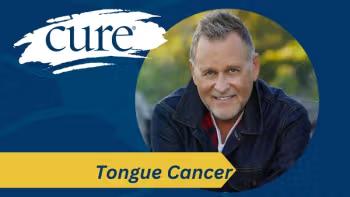
Understanding Treatment Options in Head and Neck Cancer

Transcript:
Meryl Kaufman, M.Ed., CCC-SLP, BRS-S: Dr. Brook, can you speak a little bit to the role of the hematology oncologist who gives the chemotherapy as well as the radiation oncologist and their role in your care and treatment and managing the side effects in addition to the otolaryngologist?
Itzhak Brook, M.D., M.Sc.: Unfortunately, both treatments—radiation and chemotherapy—have very, very difficult side effects. Radiation has short-term and long-term side effects. Short-term side effects are usually lasting for the treatment period, a few weeks later. But there are some long-term side effects such as low thyroid, any changes in muscles of the neck because of the fibrosis and also changes in the ears, the eyes and the blood pressure even. Some people have stricture and difficulty swallowing and eating because of the damage to the muscles or the surgical radiological side effect.
So, support by one’s otolaryngologist in combination with your radiation oncologist is very important. The chemotherapy usually has side effects that are usually within the period of the treatment, and they usually don’t last much longer. But those are very difficult side effects to deal with, and some are similar to the one in radiation, which is mucositis. But they may be very difficult to handle, so both specialists, the radiation oncologist and the oncology hematology expert, usually work together, and they see the patient, who is usually seen periodically—once a week and if necessary, more often—in the clinic. And they examine them and give them treatment for the condition they suffer. Sometimes they adjust the treatment, especially the chemotherapy, to the patient reaction because the reaction may be very serious. So, it’s very, very close, and it’s all management on the patient. But when the treatment is over, one should still continue to see those experts because they sometimes see, especially with the radiation, that there may be long-term issues such as damage to the nerves, the thyroid and the teeth.
And one thing patients need to remember is that yes, cancer was a main issue, but there are the medical issues that develop when one gets older, especially after getting radiation. So preventive care is very important. At least once or twice a year, seeing your dental hygienist every three to four months is very important because there is a tendency for damage to the gums, to the teeth. And many patients end up losing them if they don’t do preventive work such as flossing, brushing and fluoride administration. Patients need to take care of their blood pressure, take care of their kidneys. Don’t forget as we age, we have a higher risk of other cancer such as colon and breast cancers. Seeing a dermatologist after radiation is very important because the area that has been irradiated tends to have more skin cancer. So, seeing your dermatologist every four to six months or earlier when one sees a lesion that is suspicious is very important.
And, of course, nutrition is very important, too. Because of the difficulty in eating, many patients lose weight or don’t eat the right nutrients. Of course, one important person to see is a speech pathologist because they provide the most essential work of eating well, using your muscles to swallow, ingest and speak better. In my case, for example, I was very fortunate that my speech pathologist helped me regain speech and improve my speech. And it’s important to remember that every patient is different and what works for one patient doesn’t work for all. And also, with time, the need for a speech pathologist intervention is different. Immediately after surgery, everything is swollen and difficult. But with time, fortunately, everything settles down, but with a change in the neck structure, you need different approaches to treatment.
Meryl Kaufman, M.Ed., CCC-SLP, BRS-S: That’s exactly right. And so that speaks to survivorship, right, that early detection is important in the early stages of identifying the cancer but also in the survivorship? So, the sooner you notice something changing in your swallowing or in your voice or in your anatomy of your neck or your skin, you don’t wait. You go to your oncologist or your speech pathologist or your surgeon and say, “I’m noticing these changes.” And I find that a lot of patients sometimes hold back on doing that out of fear that maybe the cancer is back or maybe they need to be scared about something bad happening. But, again, proactive approach to all of this with swallowing therapy, with diagnoses, with swallowing changes, with anything on your skin, your teeth—all of that—the more proactive you can be in the survivorship over the long term, the better. So, I agree completely.
Transcript Edited for Clarity


